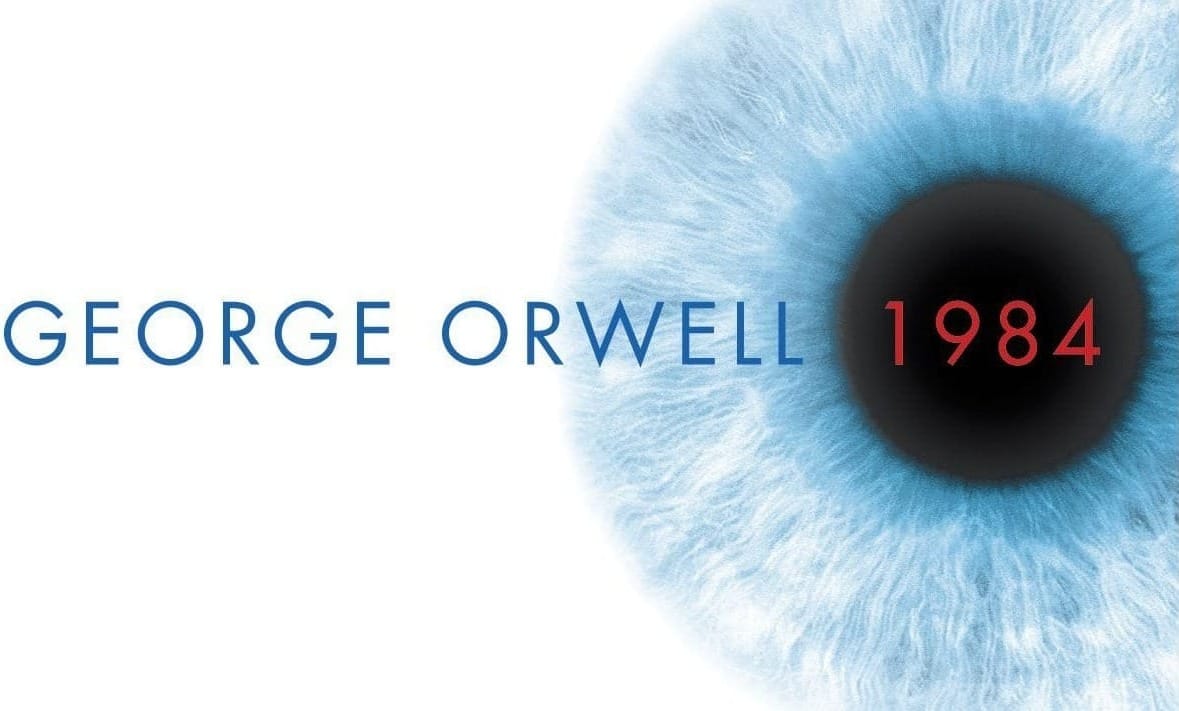George Orwell: 1984
If you want a picture of the future, imagine a boot stamping on a human face - forever.

Key words
- Dystopian: relating to a very bad or unfair society in which there is a lot of suffering, especially an imaginary society in the future, or to the description of such a society
She mentioned Margaret Atwood's dystopian novel "The Handmaid's Tale," in which fertile young women are enslaved as reproductive servants.
- Atheist: someone who does not believe in any god or gods, or who believes that no god or gods exist
As an atheist, I do not like the idea of teaching religion in schools.
- World view: a way of thinking about the world
She had a secular, liberal world view.
- Bleak: If a situation is bleak, there is little or no hope for the future
The economic outlook is bleak.
- Stark contrast: completely or extremely different
In the suburbs the spacious houses stand in stark contrast to the slums of the city's poor.
Read the article to find the answers
- Who did George Orwell fight with during the Spanish Civil War?
- In his book, 1984, what does the government have complete control over?
- Who is Orwell often compared to?
- What is Orwell's vision of the future in stark contrast to?
George Orwell
George Orwell was an English writer best known for his dystopian novels Animal Farm and Nineteen Eighty-Four. He served in the Indian Imperial Police in Burma, fought with a Marxist militia against the Nationalists during the Spanish Civil War, was a broadcaster for the BBC during World War II, and a journalist for the left-wing Observer newspaper.
1984
The word Orwellian entered the English language after George Orwell wrote his book: Nineteen Eighty-Four.
In his fictional book the government has complete control over everything in the country - even history, science and the language. History was rewritten to make the government look better, any history that made the government look bad was deleted and went down the 'memory-hole'. Mathematics was changed so that '2+2=5'. Mathematics, science, fact and logic were only correct if the government said they were. Language was simplified into 'newspeak' so that people couldn't think or communicate more than the government wanted them to.
Orwellian, 1984, memory-hole, 2+2=5 and newspeak are now regularly used in everyday conversations and also in the news as you can see from searching these terms in Google. They are an important part of the English language and discussions on modern day politics can't be fully understood unless you have an understanding of Orwell and 1984.
Other common words that come from Orwell's book 1984 include: thoughtcrime, Big Brother and Room 101. As well as being used in everyday conversations and the news they have also become the names of popular TV shows. Other terms, such as thought police, were not invented by Orwell but were popularized by his book.
Trailer for the movie 1984 released in 1984
The Future
Orwell is often compared to Aldous Huxley. They both wrote fictional books about imaginary futures and both had an impact on the English language. Anyone learning the English language - especially if they are interested in politics - needs to read Orwell's 1984 and Huxley's Brave New World.
Their atheist, left-wing world views leave readers with a hopeless and loveless vision of the future that has led many to despair, believing that a bleak future is inevitable and unavoidable. This is in stark contrast to the Christian worldview that leads believers to hope for a future of peace and joy in the Kingdom of God.
Discussion questions
- Do you have any questions about any of the vocabulary or grammar in this article?
- Which of Orwell's words did you already know?
- Do politicians in your country use Orwellian doublespeak?
- Do you think Orwell's vision of the future is possible in reality?
- Do you have Orwellian words in your language?

Book a Lesson
Improve your English language communication skills by practicing with a qualified and experienced native speaker.





